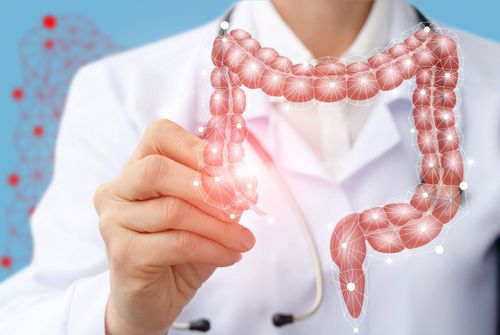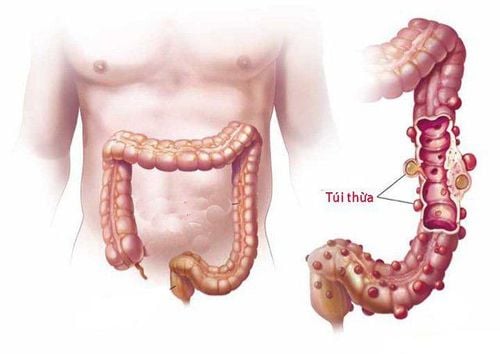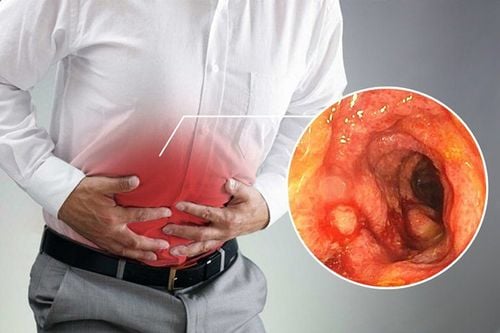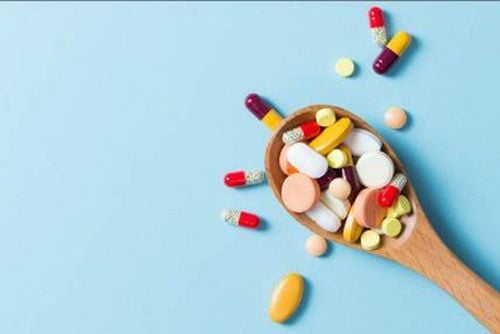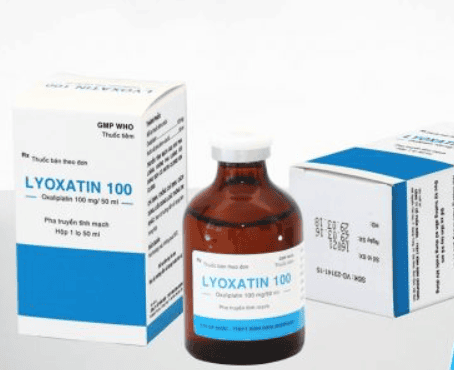This is an automatically translated article.
The article is professionally consulted by Master, Doctor Vu Huy Binh - Digestive Endoscopy Doctor - Department of Medical Examination & Internal Medicine - Vinmec Hai Phong International General HospitalColitis is an inflammatory process causing localized or diffuse damage to the colonic mucosa with different degrees. People with Crohn's disease or tuberculosis, drug abuse, and irregular lifestyle habits are at high risk for colitis.
1. What is colitis?
The colon, also known as the large intestine, is an important part of the intestinal system, with the function of containing the waste products of the digestive process from the small intestine down and out. Before excreting waste products, the colon absorbs some of the water from the waste products.Colitis is an inflammatory process that causes localized or diffuse damage to the colonic mucosa with different levels such as: bleeding, ulceration, congestion, hemorrhage, maybe even pressure foci- small car.
Colitis is divided into 2 types, namely acute colitis and chronic colitis. Colitis can be complicated into the following diseases:
Perforation of the colon: Long-standing inflammation will cause the inflammation to spread more and more, possibly causing a perforation of the colon. Colon dilatation: Chronic mucosal damage causes digestive dysfunction, resulting in the entire colon being dilated. Gastrointestinal bleeding : Caused by an inflamed colon lining, the villi in the colon are bare after treatment or when the patient uses alcohol, coffee, tobacco.... Colon: This serious complication has few specific signs. The recovery rate is high if the disease is detected at an early stage.

2. Who is at risk for colitis?
So who is at risk for colitis? Subjects with some of the following diseases and lifestyle habits are at risk of colitis:
Or use unhygienic food: When eating unsanitary food, undercooked food Or because drinking water is contaminated, the intestinal tract is infected. Bacteria such as E. coli, Rota virus, amoebic dysentery, flukes... invade the body causing inflammation and damage to the colon mucosa. People who are often stressed, stressed: If you are under work pressure, anxiety, prolonged stress, erratic eating ... you will face the risk of colitis. People with Crohn's disease or tuberculosis: These two conditions have a higher risk of developing colitis than others. Prolonged constipation: Prolonged constipation causes blood in the stool, dull pain in the abdomen, causing you to have acute colitis. Having intestinal disease: Ischemic colon, inflammatory bowel disease ... can increase the risk of colitis. Abuse of western medicine: Especially the long-term abuse of antibiotics can destroy beneficial bacteria, causing an imbalance in the digestive tract microflora, creating conditions for harmful bacteria to grow. cause damage to the colon. People who are poisoned: People who work and live in a contaminated environment make them more susceptible to acute colitis...

3. Symptoms and signs to recognize colitis
Acute symptoms:Abdominal pain: Dull pain around the colon. Diarrhea: When you have colitis, the digestive system is often disturbed, leading to diarrhea, dehydration, and electrolyte deficiency. Fever: In some cases, the patient has a high fever accompanied by nausea and vomiting. Chronic symptoms:
Bowel and urinary disorders: Colitis affects food digestion, causing constipation and diarrhea. Body weakness: If the disease progresses more seriously, other symptoms appear such as: fever, irritability, fatigue, laziness, loss of appetite, memory loss, causing weakness in the body. Abdominal bloating: Flatulence and bloating are typical symptoms, patients always feel bloated even though they don't eat too much. Colic pain: Severe, cramping pain in the area around the large intestine. Once noticed the symptoms of colitis mentioned above, the patient should see a doctor immediately to avoid causing many dangerous complications to health.

4. Note when having colitis
Healthy diet: Building a healthy eating menu contributes to limiting colitis. Should eat lean pork, chicken, duck meat; foods containing omega-3 fatty acids; butter helps the digestive system work easily; foods containing probiotics; zucchini. Avoid rancid foods, eat raw, eat rare; sweets and sweets cause water retention leading to diarrhea, passing raw stools; fatty meat, red meat easily causes bloating, indigestion, constipation; foods containing a lot of fiber cause bloating, indigestion...; milk and dairy products cause abdominal pain, diarrhea in patients with lactose intolerance; Do not use stimulants such as beer, alcohol, tobacco, coffee, bitter substances. Have a healthy lifestyle such as: Limit prolonged stress; increase physical activity and sports; Drink lots of water and gently massage the epigastrium. Wash hands before cooking and eating, deworming every 6 months.
Please dial HOTLINE for more information or register for an appointment HERE. Download MyVinmec app to make appointments faster and to manage your bookings easily.





